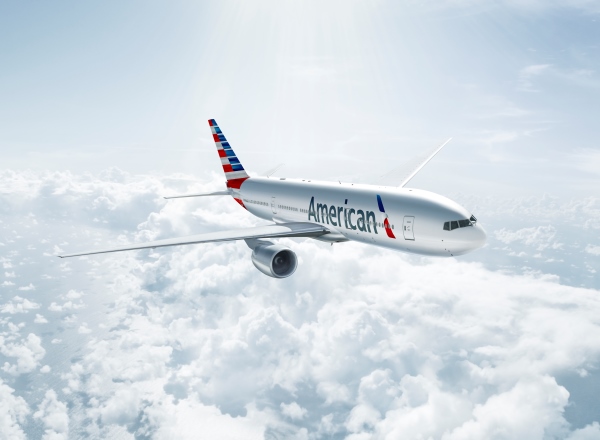
The 777-300ER is the 777 family’s current best-seller, with a total of 721 orders and 485 deliveries since the plane was introduced. The order book for the 777-300ER totals 236 planes, including 56 more to Emirates Air, Boeing’s biggest customer for the plane with a total order of 120 aircraft. The company delivered its first 777-300ER to Air France in May of 2004, and the plane went into service the following month.
The list price for the 777-300ER is $320.2 million. That is nearly $71 million more than the two-engine 787-9, which Boeing announced last summer and for which the company has taken orders for 413 planes.
Boeing also makes a freighter version, the 777F, which has attracted a total of 134 orders and first went into service in February of 2009 with Air France. The freighter is based on the 777-200LR and has a cargo capacity volume of about 23,000 cubic feet and a total payload capacity of 102 metric tons.
ALSO READ: Why a Boeing 787-9 Costs $250 Million
The 777F has a list price of $301 million, and Boeing is having a hard time selling the planes because airlines have begun carrying cargo in the bellies of their larger wide-body planes like the 777-300ER, which can carry up to 7,120 cubic feet of cargo in its hold as well as a full load of passengers. The plane’s maximum payload is 70 metric tons.
Belly cargo now gets about 60% of the market for cargo, according to some industry experts, and there are some who believe that could rise to 70% as the fleet of wide-body planes like the 777-300ER grow larger. In its latest outlook, Boeing claims that dedicated freighters still carry 60% of air cargo.
The 777-300ER has a maximum cruising range of just over 9,100 miles, compared with the 777F’s maximum flying range of about 5,600 miles. A typical city pair for a fully loaded 777F is San Francisco-Tokyo or Los Angeles-London. A typical city pair for the 777-300ER is New York-Hong Kong or Paris-Los Angeles.
What makes the 777-300ER the most expensive that Boeing currently sells? In addition to its cargo capacity, the plane can carry 365 passengers, compared with the 787-9’s capacity of 280. Each of the two General Electric Co. (NYSE: GE) GE90-115B engines develops 115,540 pounds of thrust, some 62% more thrust than the 787’s two engines. The plane is also longer than the Dreamliner, has a greater wingspan and wing area, and is taller. The maximum take-off weight of the 777-300ER is 114 tons greater than the 787-9.
ALSO READ: Why a Boeing 737 Costs up to $110 Million
Boeing believes that it will sell 850 777Fs between now and 2032 at a total list price of around $240 billion. But annual orders for the company’s 777F peaked at 42 in 2011. So even though the 777-300ER costs more than the 777F, its ability to carry passengers as well as freight and to fly farther are compelling, especially for freight that is not time-sensitive. As shipping costs continue to rise, more shippers may discover that money saved is worth the longer delivery times.
It’s Your Money, Your Future—Own It (sponsor)
Retirement can be daunting, but it doesn’t need to be.
Imagine having an expert in your corner to help you with your financial goals. Someone to help you determine if you’re ahead, behind, or right on track. With SmartAsset, that’s not just a dream—it’s reality. This free tool connects you with pre-screened financial advisors who work in your best interests. It’s quick, it’s easy, so take the leap today and start planning smarter!
Don’t waste another minute; get started right here and help your retirement dreams become a retirement reality.
Thank you for reading! Have some feedback for us?
Contact the 24/7 Wall St. editorial team.
